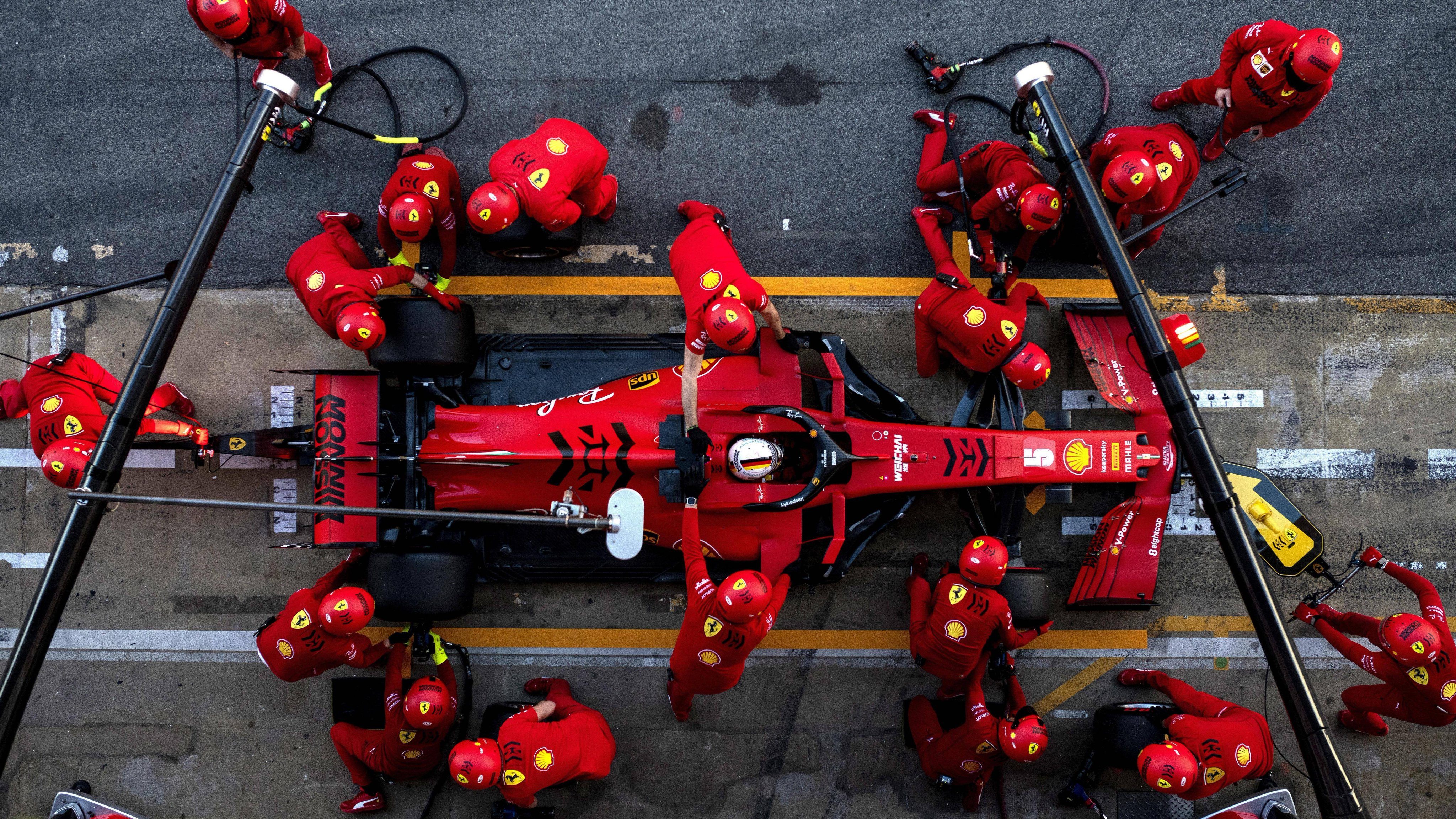Formula 1’s 2020 season is hanging by a thread after Saturday’s decision to bar spectators at the Bahrain Grand Prix, and a quarantine in northern Italy. As a truly international sport, F1 is on the front lines of the coronavirus threat.

It’s been one step forward and two steps back for Formula 1. Every time it tackles one virus-related issue, two more pop up. With its first race only days away, F1’s 2020 season could be in jeopardy.
Initially, F1’s problems were isolated to China, the coronavirus’ country of origin. Last month, Formula 1 postponed the China Grand Prix, originally scheduled for April. But as the virus spread, so did F1’s problems. And race location isn’t the only issue.
Formula 1’s Italian Problem
In Europe, Italy is struggling to contain the virus, which has already taken a toll on sporting events throughout the country, and around the globe. On Feb. 28, a major cycling race was canceled in the United Arab Emirates after two Italian staff members tested positive for the virus. Within days, 12 people, including four cyclists, were infected.
Countries across the globe instituted travel bans, barring Italians from entry. Understandably, this is a problem for Formula 1’s two Italian teams. Eventually, Formula 1 convinced Australia to admit the Italians for the season opener, providing they go through extra health screenings.
One Italian team, however, may have a bigger issue. On Sunday, Scuderia Ferrari’s headquarters and factory were quarantined, as part of a massive 17 million person lockdown in northern Italy. The separation comes at particularly bad time for Ferrari, which plans to debut a new car, the SF1000, this week.
Can F1 Afford More Bahrains?
Meanwhile, Formula 1 has more race issues. Bahrain wasn’t happy with F1’s Australian solution. Instead, the stands will be empty for the March 22 Bahrain Grand Prix.
“In consultation with our international partners and the Kingdom’s national health taskforce, Bahrain has made the decision to hold this year’s Bahrain Grand Prix as a participants-only event,” said a statement issued by the Bahrain International Circuit. “As an F1 host nation, balancing the welfare of supporters and race goers is a tremendous responsibility.”
Television coverage, however, isn’t going to cut it for F1 fans — or investors.

Last year alone, the Bahrain Grand Prix attracted 97,000 weekend attendees and 34,000 fans on race day. That’s a lot of revenue. Besides, F1 races are see-and-be-seen events. Formula 1’s VIP packages include everything from helicopter race day transportation to $10,000 table service at lavish after-parties. And they sell out.
Meanwhile, F1’s investors are starting to panic. While the US stock market is down roughly 8% this year on virus fears, Formula 1 Group’s stock is down a stunning 24%. And if there are more ticketless races like in Bahrain, it could get worse for shareholders before it gets better.









